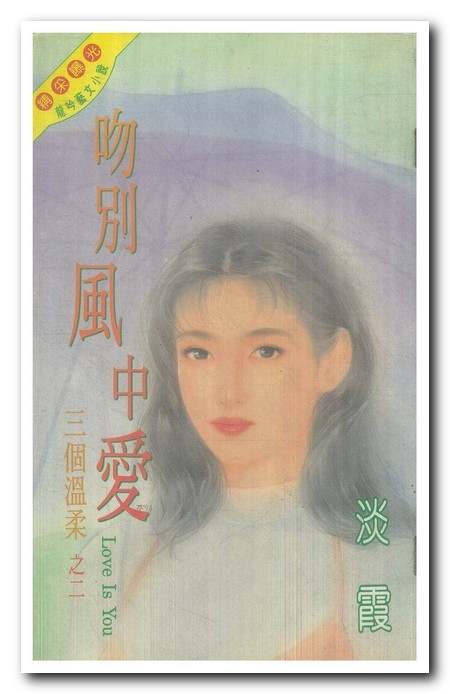the days of my life-第5章
按键盘上方向键 ← 或 → 可快速上下翻页,按键盘上的 Enter 键可回到本书目录页,按键盘上方向键 ↑ 可回到本页顶部!
————未阅读完?加入书签已便下次继续阅读!
at he was so fond of making ceased and he became very quiet。
Nobody could be more absolutely delightful than my father when he chose; and; per contra; I am bound to add that nobody could be more disagreeable。 His rows with his children were many; and often on his part unjust。 One of the causes of these outbreaks was that he seemed unable to realise that children do not always remain children。
Once when I was a young man in Africa — it was just before I was appointed Master of the High Court in the Transvaal — I was very anxious to e home after several years’ absence from England; on “urgent private affairs。” To be frank; I desired to bring a certain love affair to a head by a formal engagement; which there was no doubt I could have done at that time。
For certain reasons; however; it was impossible for me to get leave at the moment。 Yet the matter was one that would admit of no delay。 In this emergency I went to my chief; Sir Theophilus Shepstone; told him how things stood and obtained a promise from him that if I resigned my appointment in order to visit England; as it was necessary I should do; he would make arrangements to ensure my reappointment either to that or to some other billet on my return。
I suppose that I did not make all this quite clear in my letters home; and almost certainly I did not explain why it was necessary for me to e home。 The result was that the day before I started; after I had sent my luggage forward to Cape Town; I received a most painful letter from my father。 Evidently he thought or feared that I was abandoning a good career in Africa and about to e back upon his hands。 Although it was far from the fact; this view may or may not have been justified。 What I hold even now was not justified was the harsh way in which it was expressed。 The words I have forgotten; for I destroyed the letter many years ago; immediately upon its receipt; I think; but the sting of them after so long an absence I remember well enough; though some four…and…thirty years have passed since they were written; a generation ago。
They hurt me so much that immediately after reading them I withdrew my formal resignation and cancelled the passage I had taken in the post…cart to Kimberley en route for the Cape and England。 As a result the course of two lives was changed。 The lady married someone else; with results that were far from fortunate; and the effect upon myself was not good。 I know now that all was for the best so far as I am concerned; and in these events I see the workings of the hand of Destiny。 Many; I am aware; will think this a hard saying; but from Job down man has found it difficult to escape a certain faith in fatalism which even St。 Paul seems to have accepted。
There’s a divinity that shapes our ends;
Rough…hew them how we will;
writes the inspired Shakespeare; and who shall deny that he writes truth? The alternative would seem to be the acceptance of a doctrine of blind chance which I confess I find hideous。 Moreover; if it is to prevail; how fearful are our human responsibilities。 Because my dear father; who had the interests of all his children so closely at heart; wrote a sharp and testy letter; probably under the influence of some other irritation of which I know nothing; is he to be saddled with the weight of all the consequences of that letter? Or am I to be saddled with those consequences because I was a high…spirited and sensitive young man who took the letter too seriously? If we knew the answers to these questions we should have solved the meaning of the secret of our lives。 But they are hidden by the blackness that walls us in; that blackness in which the sphinx will speak at last — or stay for ever silent。
Meanwhile the moral is that people should be careful of what they put on paper。 When we throw a stone into the sea; who knows where the ripple ends?
To return — these rows at Bradenham; niy…nine out of a hundred of which meant nothing at all; had a very ical side to them。 Perhaps they sprang up at table on the occasion of an argument between my father and one of his sons。 Then he would rise majestically; announce in solemn tones that he refused to be insulted in his own house; and depart; banging the door loudly behind him。 Across the hall he went into the drawing…room and banged that door; out of the drawing…room into the vestibule (here there are two doors; so the bang was double…barrelled); through the vestibule into the garden; if the row was of the first magnitude。 If not he banged his way back into the dining…room by the serving entrance; and very probably sat doper; the exercise having relieved his feelings。 Especially was this so if the offending son had banged himself out of the house by some other route。
Only the other day I examined those Bradenham doors and their hinges。 The workmanship of them is really wonderful。 After half a century of banging added to their ordinary wear; they are as good as when they were made。 We do not see such joinery nowadays。
Considered as a whole it would have been difficult to find a more jovial party than we were at Bradenham in the days of my youth; especially when my father was in a good mood。 The noise of course was tremendous; because everybody had plenty to say and was fully determined that it should not be hidden from the world。 In the midst of all this hubbub sat my dearest mother — like an angel that had lost her way and found herself in pandemonium。 Not being blest with the Haggard voice; though she had a very sweet one of her own; often and often she was reduced to the necessity of signifying her wishes by signs。 Indeed it became a habit of hers; if she needed the salt or anything else; to point to it; and beckon it towards her。 One of her daughters…inlaw once asked my mother how on earth she made herself heard in the midst of so much noise at table。
“My dear;” she answered; “I whisper! When I whisper they all stop talking; because they wonder what is the matter。 Then I get my chance。”
Here I will try to give some description of this mother with whom we were blest。 Twenty…two years have passed since she left us; but I can say honestly that every one of those years has brought me to a deeper appreciation of her beautiful character。 Indeed she seems to be much nearer to me now that she is dead than she was while she still lived。 It is as though our intimacy and mutual understanding has grown in a way as real as it is mysterious。 Someone says that the dead are never dead to us until they are forgotten; and if that be so; in my case my mother lives indeed。 No night goes by that I do not think of her and pray that we may meet again to part no more。 If our present positions were reversed; this would please me; could I know of it; and so I trust that this offering of a son’s unalterable gratitude and affection may please her; for after all such things are the most fragrant flowers that we can lay upon the graves of our beloved。 The Protestant Faith seems vaguely to inculcate that we should not pray for the dead。 If so; I differ from the Protestant Faith; who hold that we should not only pray for them but to them; that they will judge our frailties with tenderness and will not forget us who do not forget them。 Even if the message is delivered only after ten thousand years; it will still be a message that most of us would be glad to hear; and if it is never delivered at all; still it will have been sent; and what can man do more?
I know that my mother believed that such efforts are not in vain; for she was filled with a very earnest faith。 After her death; in the drawer of her writing…table were found four lines; feebly inscribed in pencil; which are believed to be the last words she wrote。 They are before me now and I transcribe them:
Lo! in the shadowy valley here He stands:
?My soul pale sliding down Earth’s icy slope
Descends to meet Him; with beseeching hands
?Trembling with Fear — and yet upraised in Hope。
My mother was married when she was twenty…five years of age; and children came in what ladies nowadays would consider superabundance。 The eldest; my sister Ella; was born in Rome in March 1845; while they were still upon a marriage tour; and subsequently; in quick succession; the others followed。 The last of us; my brother Arthur; appeared in November 1860 — well do I remember my father in a flowered dressing…gown telling us to be quiet because we had a little brother。 This allows nearly sixteen years between the eldest and the youngest; including one who came into the world still…born。 Although she had ten children living; my mother never ceased to regret this boy; and I remember her crying; when she pointed out to me where he was buried in Bradenham churchyard。
My mother never was a beauty in the ordinary sense of the word; but in youth; to judge by the pictures which I have seen of her (photographs were not then known); she must have been very refined and charming in appearance; and indeed remained so all her life。 Her abilities were great; taking her all in all she was perhaps the ablest woman whom I have known; though she had no iron background to her character; for that she was too gentle。 Her bent no doubt was literary; and had circumstances permitted I am sure she would have made a name in that branch of art to which in the intervals of her crowded life she gravitated by nature。 Also she was a good musician; and drew well。 Of her mental abilities I have however spoken in a brief memoir which I published as a preface to a new edition of my mother’s poem; “Life and its Author。”
I think that the greatest of her gifts; however; was that of conversation。 No more charming panion could be imagined。 Also she had the art of drawing the best out of anyone with whom she might be talking; as the sympathetic sometimes can do。 In a minute or two she would find which was his or her strongest point and to this turn the conversation。 Notwithstanding the tumultuous nature of her life; her illnesses and other distractions; she contrived to read a great deal; and to keep herself au courant with all thought movements and the political affairs of the day。 Further she did her very best to teach her numerous children the truths of religion; and to lead them into the ways of righteousness and peace。 I fear; however; that at times we got beyond her。 It is not easy for any woman to follow and direct all the physical and mental developments of a huge and vigorous family who are continually ing and going; first from schools and elsewhere; and later from every quarter of the world。
She never plained; but I cannot think that the life she was called upon to lead was very congenial to her。 When young in India; where at that time English ladies were rare; as was natural in the case of one of her charm who was known also to be a considerable heiress; she was much sought after and feted。 Then she returned to England and married; and for her the responsibilities of life began with a vengeance; to cease no more until she died。 These indeed were plicated by the fact that a time came when she had to think a good deal about ways and means; especially after my father; who had the passion of his generation for land; insisted upon investing most of her fortune in that security just at the mencement of its great fall in value。 Her various duties; including that of housekeeping; of which she was a perfect mistress; left her scarcely an hour to follow her own literary and artistic tastes。 All she could do was to give a little attention to gardening; to which she was devoted。
On the whole life at Bradenham must have been very dull for her; especially after the London house was sold and she was settled there more or less permanently。 She used to describe to me the wearisome and interminable local dinner…parties to which she was obliged to go in her early married life。 The men she met at them talked; she said; chiefly about “roots;” and for a long while she could not imagine what these roots might be and why they were so interested in them; until at length she discovered that they referred to mangold…wurzel and to turnips; both as crops and as a shelter for the birds which they loved to shoot。 One good fortune she had; however: all her children survived her; all were deeply attached to her; and; what is strange in so large a family; none of them went to the bad。
Such was the circle in which I grew up。 I think that on the whole I was rather a quiet youth; at any rate by parison。 Certainly I was very imaginative; although I kept my thoughts to myself; which I dare say had a good deal to do with my reputation for stupidity。 I believe I was considered the dull boy of the family。 Without doubt I was slow at my lessons; chiefly because I was always thinking of something else。 Also to this day there are subjects at which I am extremely stupid。 Thus; although I rarely forget the substance of anything worth remembering; never could or can I learn anything by heart; and for this reason I have been obliged to abandon the active pursuit of Masonry。 Moreover all mathematics are absolutely abhorrent to me; while as for Euclid it bored me so intensely that I do not think I ever mastered the meaning of the stuff。
I think it is fortunate for me that I have never been called upon to face the petitive examinations which are now so fashionable; and; I will add; in my opinion in many ways so m





